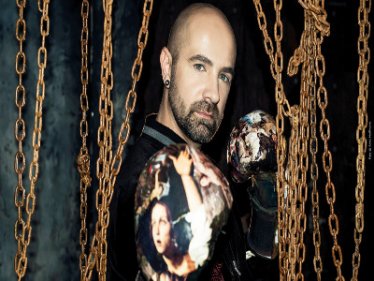Cajo Fabricio - Schedule, Program & Tickets
Cajo Fabricio
Dramma per musica in three acts (1732)
Music by Johann Adolph Hasse
Libretto by Apostolo Zeno
Concert performance in Italian
Monday, January 25, 2021, 5:30 p.m. (without a break)
For the highly talented Johann Adolph Hasse, who came from a Hamburg family of musicians, northern Germany offered little prospect of a Europe-wide career as a composer. From 1722 onwards, Hasse trained with Porpora and Scarlatti in the European opera stronghold of Naples, and with his first operas he became one of Italy's most popular composers. After completing his training, Hasse married the singer Faustina Bordoni, celebrated as “La nuova sirena”, and settled in Dresden a year later, where he shaped musical life as court conductor for three decades. King August granted the composer and his Italian wife a lot of freedom and together the couple regularly set off on long trips to Italy. For the Roman Teatro Capranica, Hasse composed Cajo Fabricio in 1732 based on a libretto by Apostolo Zeno, Pietro Metastasio's predecessor as a Viennese court poet. Since women were forbidden to appear on theatrical stages in the papal ruled Rome, Hasse did not write a parade role for his wife, but chose an all-male ensemble with six castrati and one tenor for the premiere of Cajo Fabricio. The structure of the opera follows the classic scheme of an opera seria with a strict separation of recitative and aria. The plot comes from Roman history, but focuses on the emotional entanglements of the characters involved. The Roman senator Gaius Fabricius Luscinus is sent to Taranto because the city, which is located in southern Italy, but has a Greek influence, rose against the Romans with the help of Pyrrhos, king of Epirus. Pyrrhus himself falls in love with Sestia, the daughter of Gaius Fabricius, even though she is already engaged to the Roman warrior Volusio. The historical Pyrrhus did indeed succeed in defeating the Roman army in the battle of Asculum. But his losses were so great that after his victory he said: "If we defeat the Romans in another battle, we will be completely lost!" A victory as the prelude to inevitable defeats therefore entered common parlance as the proverbial Pyrrhic victory .
Subject to changes.
Music by Johann Adolph Hasse
Libretto by Apostolo Zeno
Concert performance in Italian
Monday, January 25, 2021, 5:30 p.m. (without a break)
For the highly talented Johann Adolph Hasse, who came from a Hamburg family of musicians, northern Germany offered little prospect of a Europe-wide career as a composer. From 1722 onwards, Hasse trained with Porpora and Scarlatti in the European opera stronghold of Naples, and with his first operas he became one of Italy's most popular composers. After completing his training, Hasse married the singer Faustina Bordoni, celebrated as “La nuova sirena”, and settled in Dresden a year later, where he shaped musical life as court conductor for three decades. King August granted the composer and his Italian wife a lot of freedom and together the couple regularly set off on long trips to Italy. For the Roman Teatro Capranica, Hasse composed Cajo Fabricio in 1732 based on a libretto by Apostolo Zeno, Pietro Metastasio's predecessor as a Viennese court poet. Since women were forbidden to appear on theatrical stages in the papal ruled Rome, Hasse did not write a parade role for his wife, but chose an all-male ensemble with six castrati and one tenor for the premiere of Cajo Fabricio. The structure of the opera follows the classic scheme of an opera seria with a strict separation of recitative and aria. The plot comes from Roman history, but focuses on the emotional entanglements of the characters involved. The Roman senator Gaius Fabricius Luscinus is sent to Taranto because the city, which is located in southern Italy, but has a Greek influence, rose against the Romans with the help of Pyrrhos, king of Epirus. Pyrrhus himself falls in love with Sestia, the daughter of Gaius Fabricius, even though she is already engaged to the Roman warrior Volusio. The historical Pyrrhus did indeed succeed in defeating the Roman army in the battle of Asculum. But his losses were so great that after his victory he said: "If we defeat the Romans in another battle, we will be completely lost!" A victory as the prelude to inevitable defeats therefore entered common parlance as the proverbial Pyrrhic victory .
Subject to changes.
There are no products matching the selection.






